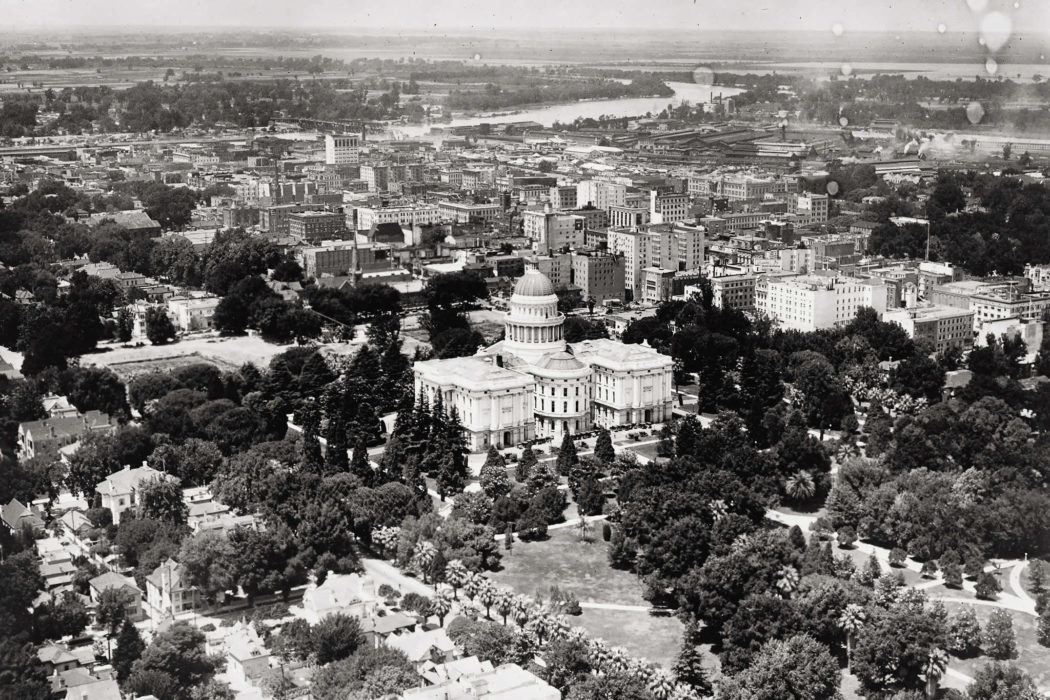“‘ABDU’L-BAHÁ HARDLY REQUIRES an introduction, as nearly all who are present have been looking forward to his coming to Sacramento.” The speaker was Christine Fraser from The Home of Truth, a branch of the New Thought movement gaining momentum in America at the turn of the twentieth century. ‘Abdu’l-Bahá had left San Francisco that morning, on October 25, 1912, arriving in Sacramento by noon. At 8:30 p.m. that same evening, an audience gathered in the Assembly Hall of the Hotel Sacramento to hear him speak.
The Home of Truth movement was founded by Annie Rix Militzin. She was Christian, but at the World’s Columbian Exposition in Chicago she met Swami Vivekananda, and thereafter took an interfaith approach to religion. By 1903 there were eight Home of Truth centers in the United States. In her introduction Christine Fraser expressed her thanks that “someone can come to us from the far ends of the earth, from that beautiful place Palestine, for Mt. Carmel, we are told in scripture, was the school of the prophets.”

‘Abdu’l-Bahá’s talk drew parallels between the lives of Jesus and Bahá’u’lláh, both of whom were subjected to persecution for challenging the religious authorities of the day. Then, to this crowd accustomed to mystical explorations, he enumerated a number of practical principles that he characterized as “true religion.” True religion caused unity, peace, and love, ‘Abdu’l-Bahá remarked, while religious imitations led to war and strife. The main reason that people turn to irreligion or atheism, ‘Abdu’l-Bahá argued, was because “the blind imitations or dogmatic interpretations current among men do not coincide with the postulates of reason. . . .” All should investigate reality for themselves, he explained: “Reality is one; and when found, it will unify all mankind.”
‘Abdu’l-Bahá went on to underline the importance of expelling prejudice, whether racial, political, patriotic, or religious. He affirmed woman’s equality with man. “In the estimation of God there is no gender,” he explained. “The one whose deeds are more worthy, whose sayings are better, whose accomplishments are more useful is nearest and dearest in the estimation of God, be that one male or female.”
‘Abdu’l-Bahá delineated two kinds of civilizations that evening. “Material civilization,” he explained, “concerns the world of matter or bodies, but divine civilization is the realm of ethics and moralities.” The Prophets of God, such as Christ, are the founders of divine civilization, without which, ‘Abdu’l-Bahá said, “eternal happiness cannot be realized.”






